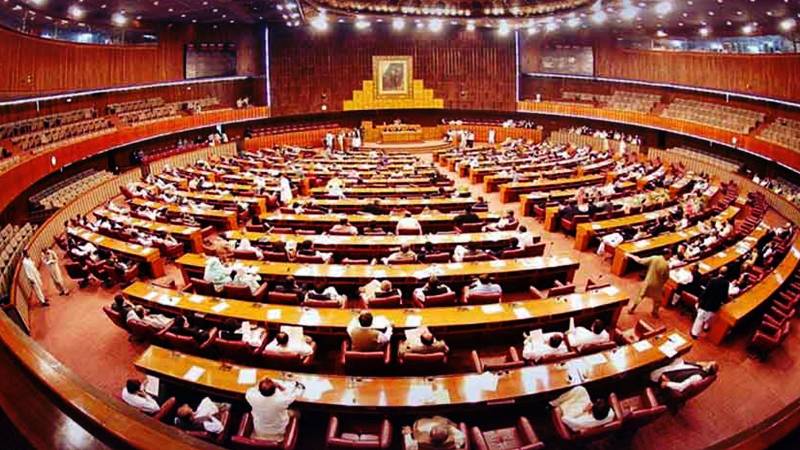
The coalition government on Sunday passed the 26th Constitutional Amendment Bill, 2024, in the Senate and later in the National Assembly, which limits the Chief Justice of Pakistan’s (CJP) tenure to three years. This move faced strong opposition from the Pakistan Tehreek-e-Insaf (PTI) party who boycotted the vote.
In the Senate, the bill received a decisive vote of 65-4, meeting the required two-thirds majority.
The bill had been delayed for weeks, with the federal cabinet approving the draft just hours before the Senate session. Political leaders had been negotiating the constitutional changes until late Saturday night, amid concerns from the PTI.
The government initially planned to present the bill on Saturday, but Jamiat Ulema-e-Islam-Fazl (JUI-F) leader Maulana Fazlur Rehman requested a delay to gather support from the PTI. The PTI has repeatedly criticised the proposed amendments, which include the fixed tenure for the CJP, the establishment of constitutional benches, restructuring the Supreme Judicial Council, and forming a Special Parliamentary Committee to recommend candidates for the CJP position.
During the Senate session, Federal Minister for Law Azam Nazeer Tarar stated that the coalition had reached a consensus on the bill. He explained that a special parliamentary committee, comprising representatives from all parties, had discussed the proposed changes.
Tarar urged the Senate Chairman Yusuf Raza Gilani to allow the draft bill to be tabled as an additional agenda item. He pointed out that the appointment process for judges had been altered by the 18th Amendment. He added that CJP Qazi Faez Isa had expressed no desire to extend his term, countering criticism from the opposition.
The law minister outlined the main aspects of the bill, including the establishment of constitutional benches and a new process for appointing judges. He mentioned that a judicial commission would select judges, who would be evaluated based on their performance. According to the proposed changes, the term for the CJP would be limited to three years, with the top judge chosen from the three senior-most judges of the Supreme Court.
To strengthen the legislative role in appointing judges, the 12-member parliamentary committee would require a two-thirds majority to appoint the CJP. The bill also allows for the establishment of constitutional benches at the provincial level. Tarar emphasized that the aim of the amendments is to provide quicker and more affordable justice for citizens and urged the Senate to support the bill.
PTI Senator Barrister Ali Zafar expressed strong opposition, calling the Constitution a "social contract" that requires consensus. He warned that amendments made without broad agreement could harm democracy in Pakistan. He referenced Article 58(2)(b), which allowed the president to dissolve the government, noting that both the PML-N and PPP had suffered due to such amendments in the past.
Zafar stated that the PTI had decided not to vote on the amendment, having gathered signatures from all their members to confirm their stance. He expressed concern about the urgency to pass the amendment before October 25, when the current CJP is set to retire, and mentioned that the draft contained significant flaws.
In response, PPP Senator Sherry Rehman criticized the opposition for failing to propose any alternatives during ten committee meetings. She praised Bilawal Bhutto-Zardari for his efforts to build consensus on the proposed constitutional changes.
Despite PTI's announced boycott of the voting process, their Chairman Barrister Gohar later stated that party members would attend the parliament session. However, he reiterated that PTI would not support the proposed amendment due to the rushed process and the way their members were treated.
Prime Minister Shehbaz Sharif praised the cabinet’s decision as a significant achievement for Pakistan's future. He congratulated the nation on the approval of the 26th Amendment, stating that it was made in the interest of national development and prosperity.

